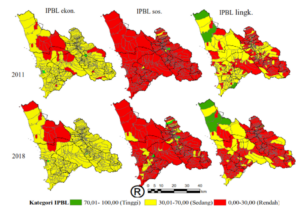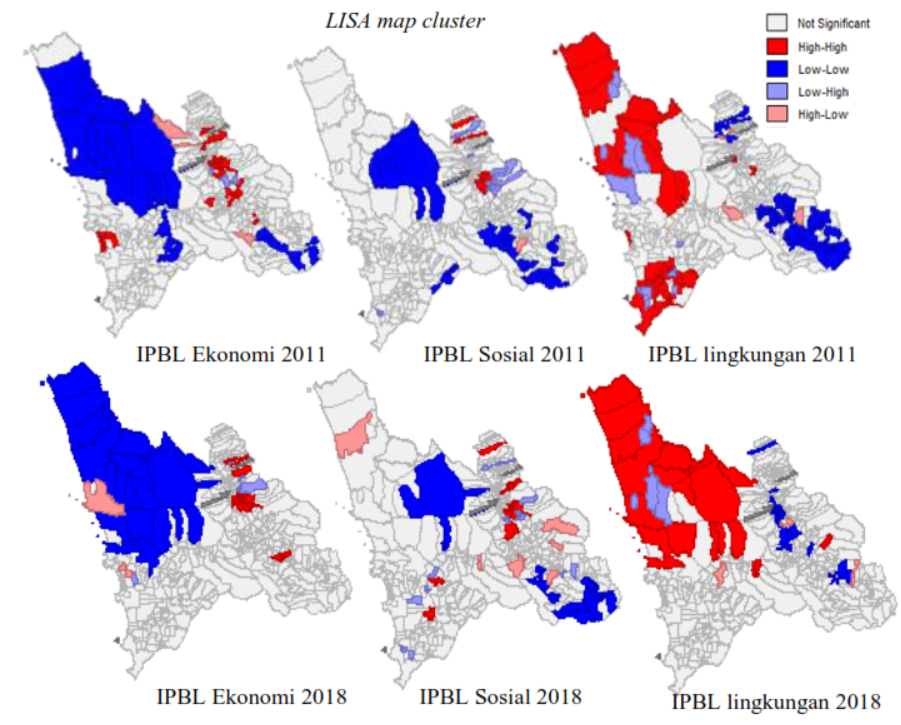Indeks Pembangunan Berkelanjutan Lokal dan Sebaran Spasialnya di Kabupaten Mandailing Natal, Provinsi Sumatera Utara
 Author: Elvina Nora Lubis, Andrea Emma Pravitasari dan Dwi Putro Tejo Baskoro
Author: Elvina Nora Lubis, Andrea Emma Pravitasari dan Dwi Putro Tejo Baskoro
Abstract: The concept of sustainable development is very important to increase our quality of life. Measurement of development based on specific indicators is one of the approaches to describe sustainable development. At the local level, measuring sustainable development using specific indicators is still rare. Since each location has their own unique characteristics, measuring sustainability at the regional level could not always be applied locally. The availability of data at the village level strongly encourages the local measurement of sustainable development index. The economic, social, and environmental dimensions of Mandailing Natal Regency’s development are still constrained. Using 21 variables that can reflect economic, social, and environmental aspects, this study aims to measure the sustainable development index at the local level. The Local Sustainable Development Index will be generated by analyzing these variables using the Factor Analysis (FA) method and Local Indicator of Spatial Autocorrelation (LISA) analysis. This index measurement is useful in considering the direction of location-based (spatial) development for decision makers at the local level and describe development sustainability. In general, IPBL economic value was in the medium category in 2011, and several villages in the low category were able to enhance their economic development sustainability in 2018. In the northwest, IPBL environment cluster type High-high (HH). In 2018, the percentage spatial distribution pattern of villages with the Low-low (LL) cluster type of IPBL economic and IPBL environment decreased. However, as can be seen from the spatial distribution pattern of IPBL social with cluster type LL, the percentage increased in 2018.
Keywords: factor analysis, LISA, Local Sustainable Development Index, spatial distribution
Journal URL: https://journal.ipb.ac.id/index.php/p2wd/article/view/35291
